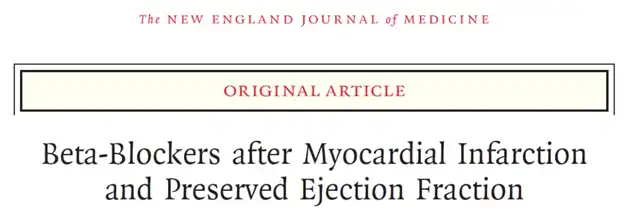New Strategy for Medication after Heart Attack: Do We Still Need Beta-Blockers?
- Normal Liver Cells Found to Promote Cancer Metastasis to the Liver
- Nearly 80% Complete Remission: Breakthrough in ADC Anti-Tumor Treatment
- Vaccination Against Common Diseases May Prevent Dementia!
- New Alzheimer’s Disease (AD) Diagnosis and Staging Criteria
- Breakthrough in Alzheimer’s Disease: New Nasal Spray Halts Cognitive Decline by Targeting Toxic Protein
- Can the Tap Water at the Paris Olympics be Drunk Directly?
New Strategy for Medication after Heart Attack: Do We Still Need Beta-Blockers?
- Should China be held legally responsible for the US’s $18 trillion COVID losses?
- CT Radiation Exposure Linked to Blood Cancer in Children and Adolescents
- FDA has mandated a top-level black box warning for all marketed CAR-T therapies
- Can people with high blood pressure eat peanuts?
- What is the difference between dopamine and dobutamine?
- How long can the patient live after heart stent surgery?
New Strategy for Medication after Heart Attack: Do We Still Need Beta-Blockers?
Beta-blockers are a cornerstone in the treatment of heart failure with reduced ejection fraction (HFrEF) and have been shown to significantly improve the prognosis of patients with HFrEF. However, most of the studies supporting this conclusion were conducted in the 1980s. In the current era where reperfusion strategies dominate, beta-blockers do not seem to significantly reduce mortality rates in patients. Additionally, there is currently a lack of data on the efficacy of long-term use of beta-blockers in treating heart failure with preserved ejection fraction (HFpEF).
Recently, the results of the REDUCE-AMI trial were published in the New England Journal of Medicine (NEJM), indicating that for patients with acute myocardial infarction who underwent early coronary angiography and had a normal left ventricular ejection fraction (≥50%), long-term use of beta-blockers did not reduce the composite risk (death from any cause or new myocardial infarction) compared to patients not using beta-blockers.

One of the co-authors of the study, Professor Tomas Jernberg from the Karolinska Institute in Sweden, stated, “Currently, patients with acute myocardial infarction are usually prescribed beta-blockers such as metoprolol or bisoprolol after discharge. According to our study, about half of the patients with small myocardial infarctions and normal cardiac function did not benefit from this treatment. The results of the study are meaningful for future clinical practice and may change patient treatment strategies.”
The study was a registry-based, prospective, open-label, parallel-group, randomized clinical trial that included 5020 patients with acute myocardial infarction from 35 medical centers in three countries, all of whom underwent coronary angiography and had a left ventricular ejection fraction ≥50%. The patients were randomly divided into two groups in a 1:1 ratio to receive long-term treatment with beta-blockers (metoprolol or bisoprolol) or not receive long-term treatment with beta-blockers.
The primary endpoint of the study was the composite endpoint of all-cause death or new myocardial infarction. The results showed that during a median follow-up of 3.5 years, there was no significant difference in the primary endpoint between patients receiving long-term treatment with beta-blockers and those not receiving long-term treatment. Among patients receiving long-term treatment with beta-blockers, 7.9% (199/2508) experienced a primary endpoint event, compared to 8.3% (208/2512) of those not receiving long-term treatment (HR=0.96, 95%CI=0.79~1.16, P=0.64).
The secondary endpoint was the cumulative incidence of all-cause death, death from cardiovascular causes, myocardial infarction, hospitalization for atrial fibrillation (primary diagnosis), and hospitalization for heart failure (primary diagnosis). The results showed that long-term use of beta-blockers did not reduce the cumulative incidence of the secondary endpoint.
In terms of safety, there was no significant difference in safety between patients receiving long-term treatment with beta-blockers and those not receiving long-term treatment.
According to the “Chinese Expert Consensus on the Diagnosis and Treatment of Heart Failure with Preserved Ejection Fraction 2023,” beta-blockers are not routinely recommended unless there is an indication for beta-blocker use in underlying diseases or complications (recommendation strength: conditional; quality of evidence: B). The guideline states that beta-blockers may reduce the risk of cardiovascular death in patients with HFpEF, but further research is needed. Considering the limited evidence on beta-blockers, their use in the treatment of HFpEF without an indication is not supported.
Professor Tomas Jernberg emphasized, “The current study is limited to the treatment of small myocardial infarctions, not large ones. Patients should not stop taking beta-blockers on their own. If there is a need to stop taking them, they should consult their attending physician because the reasons for using beta-blockers vary among patients, and some patients may need to use beta-blockers for other reasons.”
New Strategy for Medication after Heart Attack: Do We Still Need Beta-Blockers?
References:
[1] Yndigegn T, Lindahl B, Mars K, et al. Beta-Blockers after Myocardial Infarction and Preserved Ejection Fraction. N Engl J Med. 2024 Apr 7. doi: 10.1056/NEJMoa2401479. Epub ahead of print. PMID: 38587241.
[2] KAROLINSKA INSTITUTET. Unnecessary use of beta-blockers after a heart attack. https://www.eurekalert.org/news-releases/1040457
(source:internet, reference only)
Disclaimer of medicaltrend.org
Important Note: The information provided is for informational purposes only and should not be considered as medical advice.



